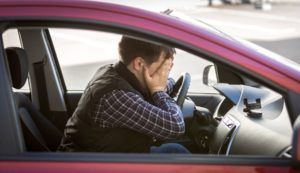 The state of Wisconsin has many distinctions for the types of OWI convictions and the severity of the punishments. If your blood alcohol concentration (BAC) is less than .15% on your first offense you will not be required to install an ignition interlock device. On top of that, regardless of your BAC, you will only be charged with a civil offense. Wisconsin OWI charges don’t reach the level of a felony until a fifth offense occurs, however the penalties do include fines, jail time, license revocation, and a mandatory alcohol assessment and evaluation at each level.
The state of Wisconsin has many distinctions for the types of OWI convictions and the severity of the punishments. If your blood alcohol concentration (BAC) is less than .15% on your first offense you will not be required to install an ignition interlock device. On top of that, regardless of your BAC, you will only be charged with a civil offense. Wisconsin OWI charges don’t reach the level of a felony until a fifth offense occurs, however the penalties do include fines, jail time, license revocation, and a mandatory alcohol assessment and evaluation at each level.
While Wisconsin’s OWI penalties may seem lighter than a lot of other states, getting back on the road after a Wisconsin OWI conviction is involved. The process is twofold. The first part includes these tasks:
- Show up to your court date.
- Contact the court ordered Intoxicated Driver Program (IDP) within 72 hours of conviction to schedule an assessment.
- If so ordered after your assessment, attend Traffic Safety School, Group Dynamics or the Multiple Offender Program.
- Verify your eligibility with Wisconsin DOT.
- Obtain proof of SR-22 insurance.
- If required, have an ignition interlock device installed on every vehicle titled in your name.
The second step of this process is to obtain your occupational license – this is what Wisconsin calls their restricted license. An occupational license allows you to drive for specific reasons at specified times of the day. The steps for obtaining this license are the following:
- Located a DMV and fill out the Application for Occupational Operator forms.
- Complete all the necessary tests.
- Provide proof of identity and citizenship.
- Proof of IDP and any additional program completion.
- Proof that you have the ignition interlock device installed.
- Provide SR-22 insurance certificate.
- Pay the application fee.
As you can see, this process will not be easy. Before you make the choice to get behind the wheel while intoxicated, think about the consequences of your actions and what hoops you may have to jump through to legally get back on the road.

 Can you Legally Skip the Virginia DUI Drama?
Can you Legally Skip the Virginia DUI Drama?